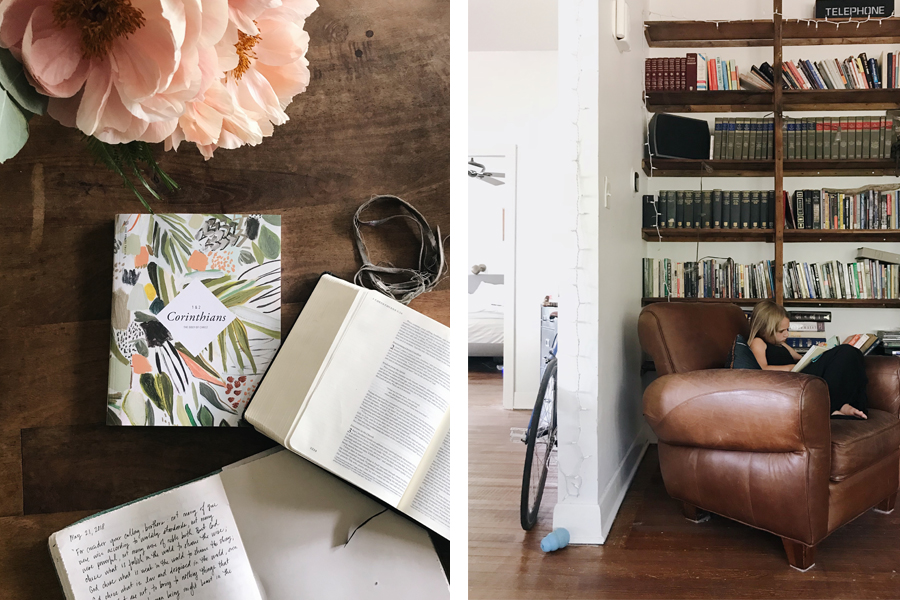
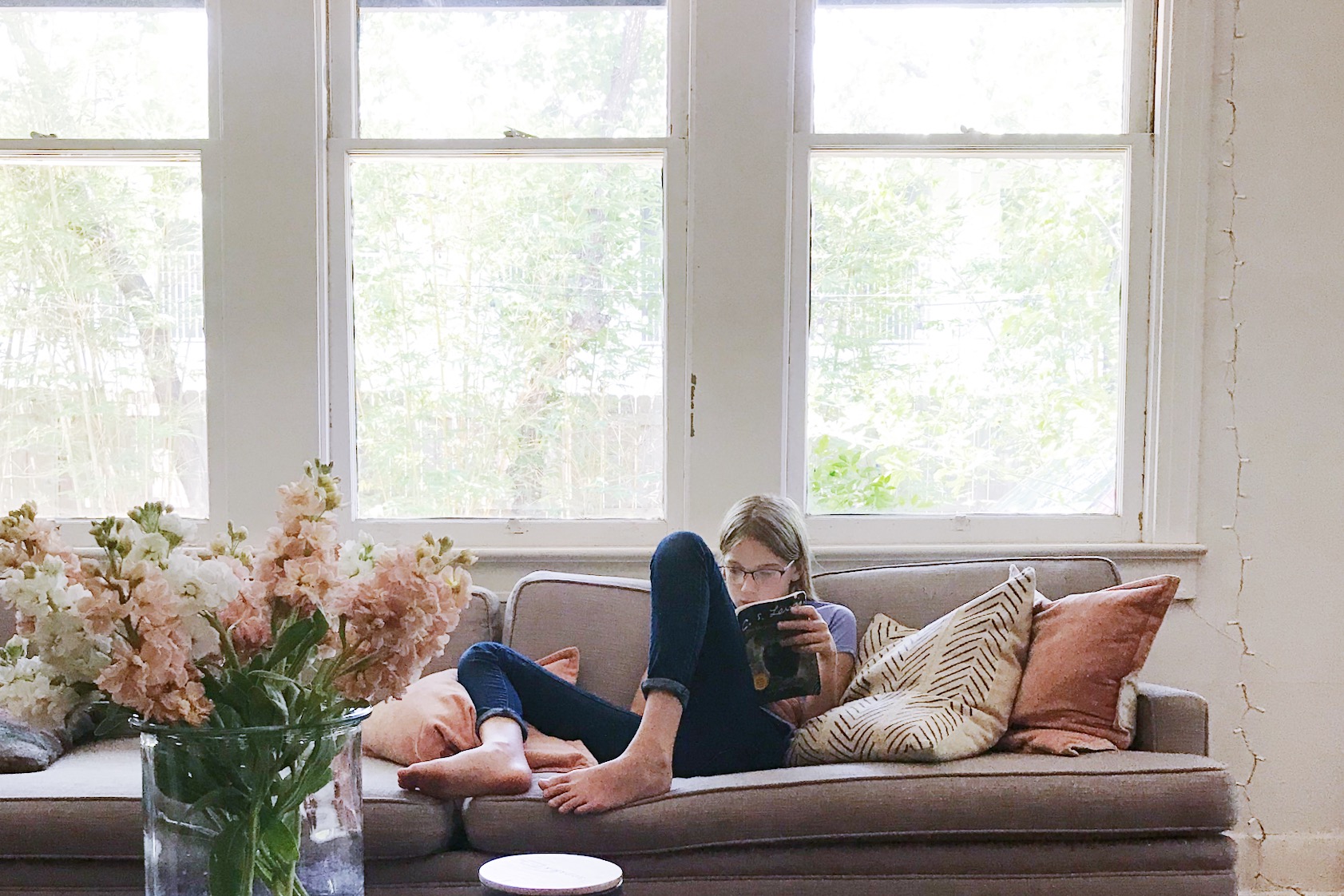
I often receive messages this time of year asking about our routine during the summer. Primarily, do we continue homeschooling or not? How do we structure our days? Or do we at all? In the homeschooling home, where boundaries of time and space ebb and flow, it can be difficult to discern transitions. There are no closing bells or good-bye parties for summertime. There may be an end to a study or co-op or music lesson or team sport, but not always. For the most part, homeschooling is an extension of the home, cyclically beginning and ending, flexing in content and activity to the needs and curiosities of the people who inhabit it. So how does our home look in the summertime? Different every year.
For the first several years of homeschooling, my husband was an educator, so we dropped all formal, structured learning in these months for home projects and travel together as a family. The single thread through them all has been reading. We always read, regardless of location and activity and season. You will find books in our car, in our purses and travel bags, and in every room of our home, minus the bathroom (because gross––wink). In more recent summers, the pattern has continued with home projects and travel, with more added structure in our days again by the end of July or the start of August. I have found too much willy-nilly-ness in our days stirs the pot of bickering around here, and sometimes all the travel and lack of routine works against us.
This year feels very different. Three of our four children will be in orthodontic braces this summer (insert: empty wallet emoji), meaning we will be enjoying more time at home, with a few inexpensive tweaks and repairs to our home spaces. Minus a few weekend trips to friends and family, we have an open calendar at home, and even more surprisingly, it feels good. Really good. Empty space, whether in our physical spaces or in the more abstract ones of time can feel uncomfortable, like we’re missing something, or needing something to fill it. But space can be one of the greatest sources of creativity and freedom, too. I love for my children to feel a sense of boredom, to enjoy an idle moment and follow where it might lead them, to wrestle with the tension of doing and being, of receiving and creating. It feels like a mini-resistance in a world of constant entertainment.
For our home this summer, we will have a mixture of structure and unstructured time in our day. Like many homes, we plan to settle into the relaxed days of summer, taking a break from new lessons and longer academically-driven days. While I am planning to keep firm boundaries of time, the space within those abstract walls is wide and vacant for their own pleasure, an invitation to re-create and enjoy time.
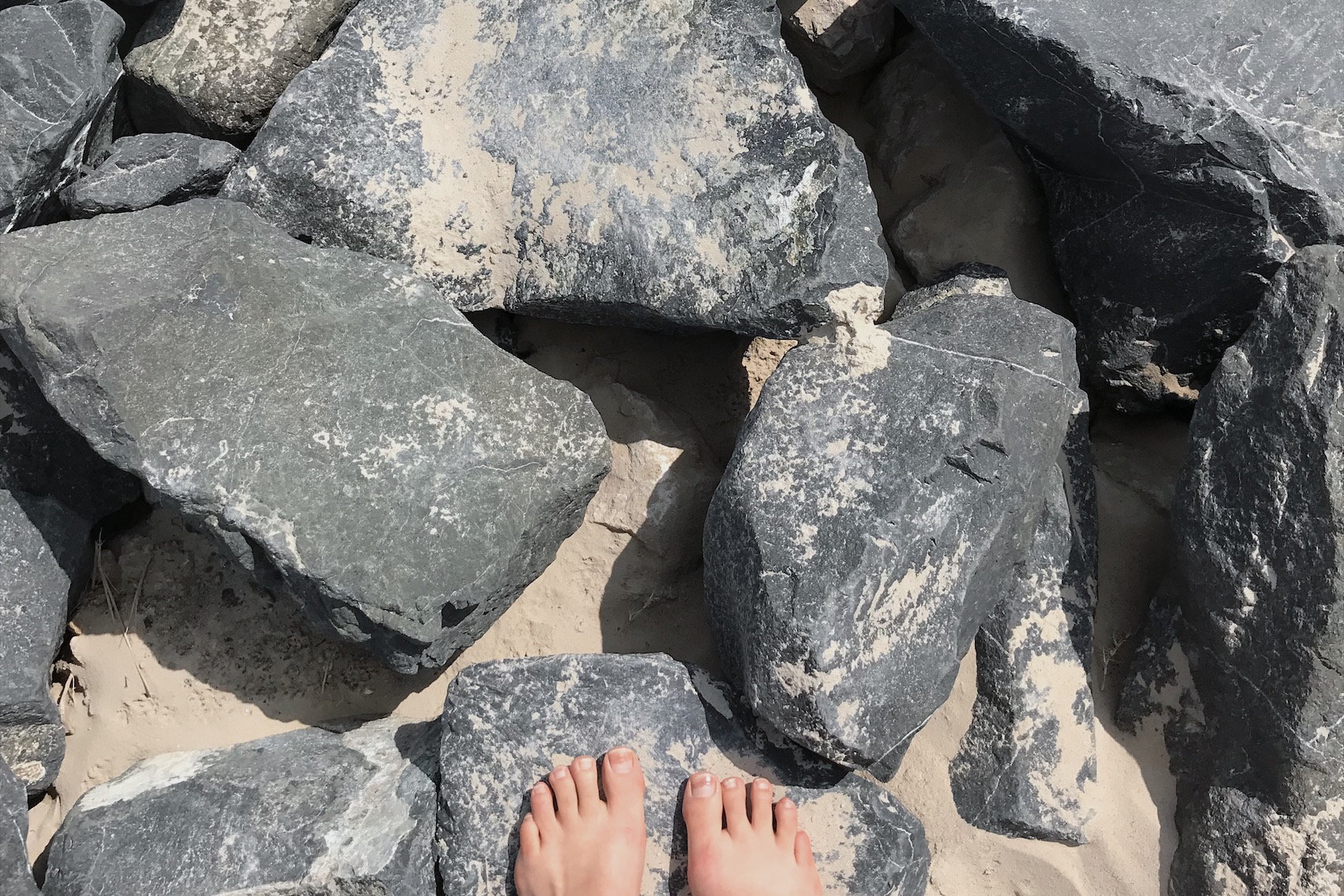
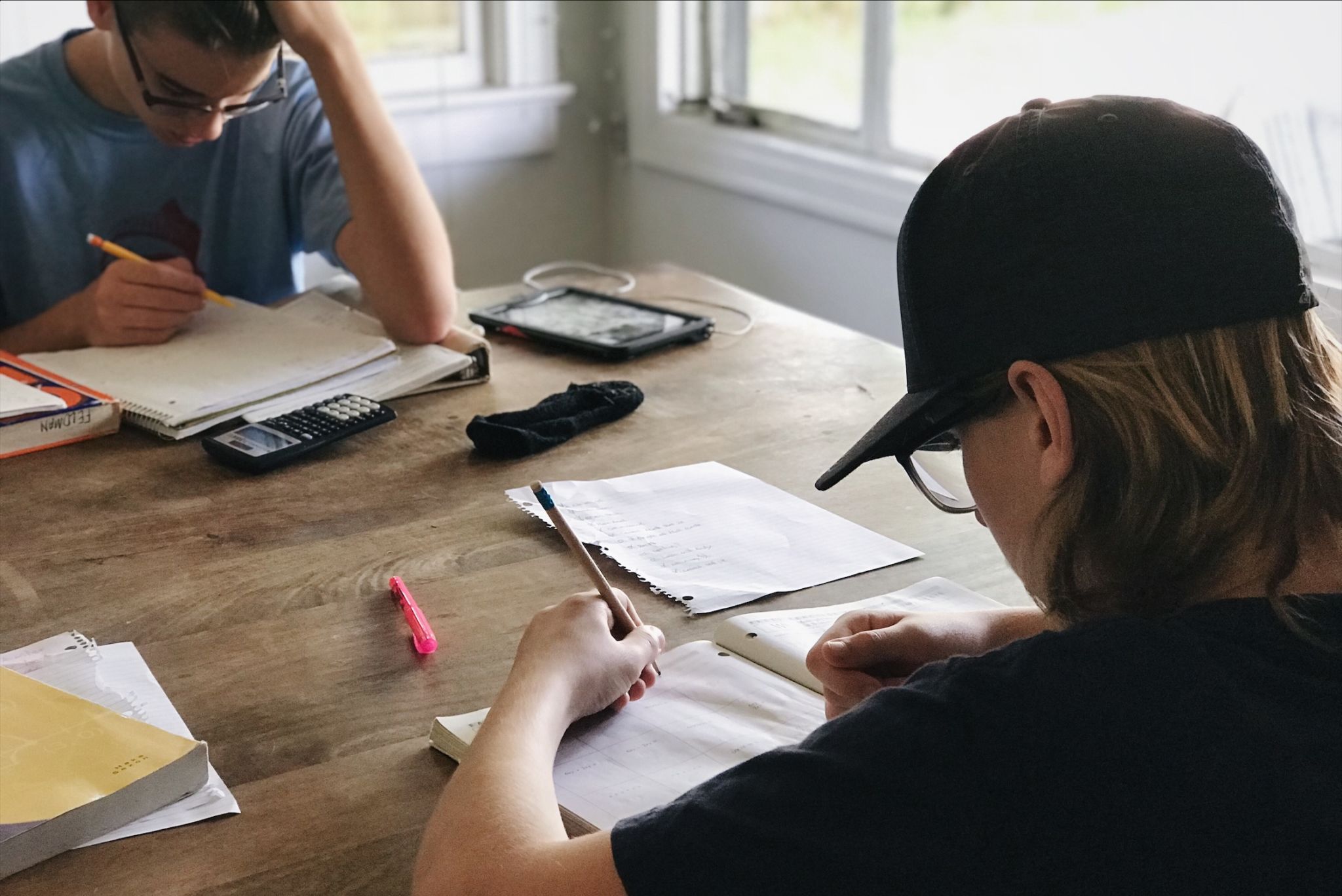
I know all of our homes are unique, with various goals and needs, so I am sharing this from our own. Read through it with grace and measure, gleaning what might be of value to you, and skipping the rest. Keep in mind, our children are 9-14 in age, meaning the concepts might look very different in homes with younger children. Wherever you are, enjoy it! It will change.
Summer Intensive / This list will make some of you yawn or roll your eyes, but I developed this particular list of things, based on needs and desires I noticed in my children and the conversations within our home. This is the most structured part of our week, 2-3 hours / 4 days a week. It includes:
30 Minutes of Quiet in Scripture / We’re using the She/He/Kids Read Truth as a guide through 1 and 2 Corinthians this summer, reading basically a chapter or two a day. Although we’ve read the Bible aloud together over the years, I’m ready to begin encouraging my older ones in their own spiritual disciplines, namely how to read, learn, and listen on their own. I plan to write more on this in a separate post.
Spelling / I’ve noticed slippery spelling in each of my children during this last year of writing, and wanted to be intentional about practicing this skill. I’m using All About Spelling and began all four of them at level one, listing words via the index, to target specific words and spelling rules they may need to revisit. I plan to work the older three through the words in all seven levels this summer and pause Olive wherever I notice she needs work along the way.
Latin / The boys have been studying Henle Latin I with their CC Challenge course during the year. We’re using Latin with Andy tutorials and exercises briefly each day to keep content fresh and fill in weaker spots, especially for Liam who will move to Latin II next year. Blythe is doing a little Latin memory work before she begins her first year of study this year, and Olive is working through All About Reading level 4 with me during this time to strengthen her reading skills.
Math Facts + Laws / All of the kids have finished their math for the year, and instead of moving into new lessons or concepts, they’re practicing math facts for a bit each day. The older ones are also reviewing Algebraic and Geometric Laws to strengthen their speed and work during the year. This is only 15 minutes or so each day.
Fun Fridays / Since we aren’t traveling this summer, I’m trying to be more intentional about day-trips and excursions this summer. We are planning Summer Intensive Monday through Thursday and leaving Fridays strictly for fun experiences together (with friends when possible) and our family Shabbat dinner in the evening. The children and I created a list of fun things we’d like to do this summer, everything from our annual The Lord of the Rings film marathon to sleepovers with friends to swim days to s’mores and campfires to hiking. Some of the things on the list can be wiggled into our weekday afternoons, while others will be special for the three day weekend each week.
Free Time / Even having 2-3 hours of structured Summer Intensive leaves many unstructured hours in our summer days. I need personal time to be able to write and work, and the kids need time to feel that sense of boredom, of creation. In order to avoid the “can I watch a show?” or “Can I play on the ipad?” thirty-two times a day, I created a list of potential activities for them when they feel stuck. Some activities are intuitive for our kids, reading, drawing, crafting, and although those things are on the list, I wrote less intuitive things, too, for the other times when they need gentle nudges, such as: create a scavenger hunt, write a letter to a friend, build an obstacle course in the yard, make a fort, watch the clouds and name the shapes. For those of you with younger children, consider building craft boxes now that they can only access during certain parts of the day.
Entrepreneurship + Internships / This technically falls under the same part of day as free time, but it seemed worth noting separately. Liam and Burke began their own lawn business three summers ago. Last year, they brought on two more friends and their younger cousin as a bagger. Three days a week, they work this business together, and two afternoons a week Liam is interning with his father and uncle. Liam’s hours are the most full, but he is also entering his second year of high school, learning more about making the most of his hours in rest, work, and play, such an exciting time for him.
Screen Time / Yes, our kids have screen time in the summer, but it is limited to a strategic time in the week and more often reserved for two hours on the weekend. Sometimes we opt to watch a movie on a weeknight, or I let the boys play video games during a sleepover, or I let the kids watch a movie on a rainy afternoon, but these are exceptions. Or at least I want them to be. iPad included. The iPad is used for facts practice with the app, Xtra Math, where they each race their own times, for tutorials, and for texting friends at certain times of the day. This practice isn’t perfect in our home, but managing screens––both the time and content––is something we feel very strongly about in our home. We work hard to set clear boundaries and have plenty of conversation with our children. Basically, I’ve made peace with being the “bad guy” when it comes to this topic, especially in light of what friends can and cannot do.
Summer Reading / Although reading is always apart of our routine. Summer reading is particularly rewarding because of all the programs available through the local library and bookstores. We’re all in, and the library is apart of our weekly routine. Liam has a list of 19 British Lit novels he’ll be reading next year, so most of his reading will begin there, currently Beowulf and The Screwtape Letters. Burke will mostly be reading short stories next year, so we’ve worked with him to create a list of books we think he’d enjoy (and that we’d enjoy talking about with him), beginning with My Antonia and Fahrenheit 451. Blythe is working on her list of novels for the fall, currently The Magician’s Nephew, as well as fun pieces of modern fiction. Do you know the 8-12 range of children’s literature is my absolute favorite? And Olive is steadily working through Harry Potter and the Chamber of Secrets, and shorter read-alouds to me to work on her comprehension and fluency.

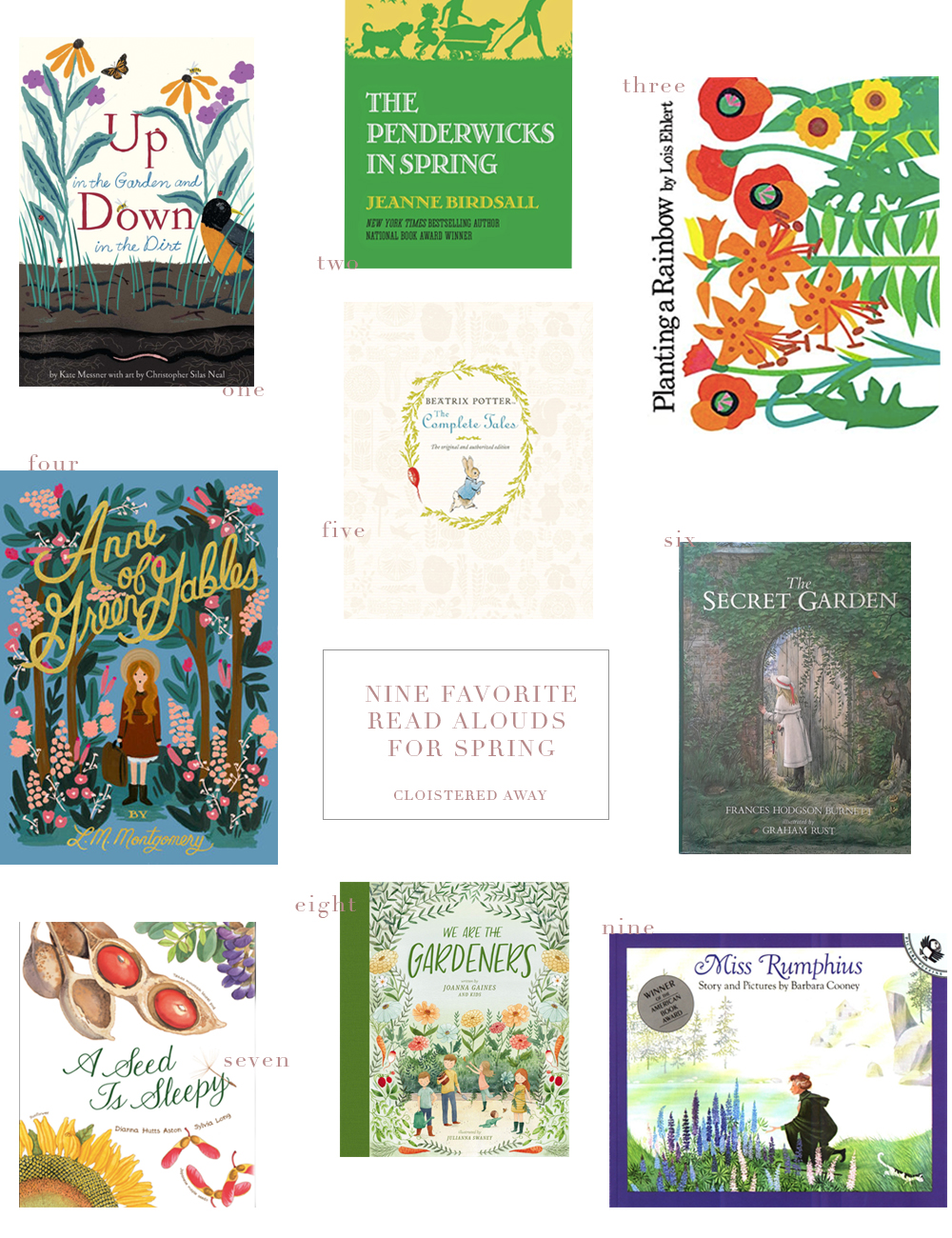
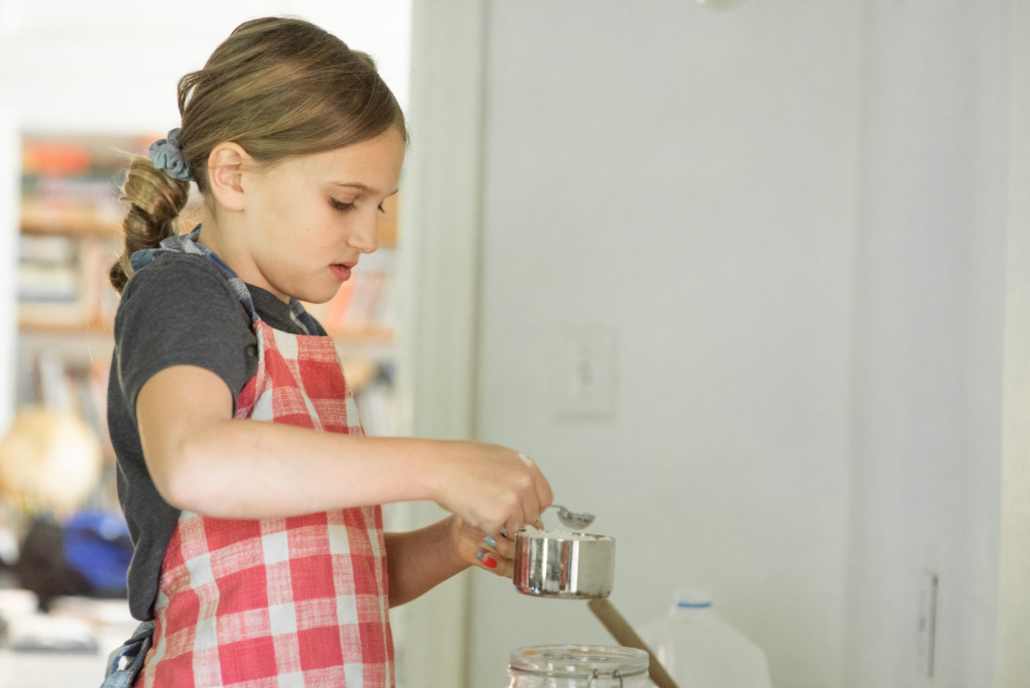
Comments
Pingback: Our Summer Rhythm and Routine
Do you mind sharing your list of activities for the kids to think through when boredom strikes? Would love some fun ideas to add for those lazy afternoons! Thanks!
Hello from South Carolina. A dear friend shared your Christmas list with me last year, and I drop by occasionally as time permits. Your words offer wonderful encouragement, helping me balance the practical with the beautiful. Thank you for sharing your life in this space.
Hi Bethany – I am a quiet reader here but just wanted you to know how this post resonated with me! Thank you – slow is really one of my life words and this just spoke to what my heart needs this summer. I’m also glad to hear you reference Latin with Andy as I’ve wondered if it would be helpful for my rising Ch. B and A students and their mama ;) Your photos are always a calm and quiet place for my eyes to land for just a couple of minutes of the day and I just wanted to say thank you.
We too like a little structure. We’ll be doing about an hour of work in the morning: typing practice, X-tra math drills, and phonics. My 2nd grader is doing Explode the Code over the summer to keep her skills sharp while my dyslexic twins will be doing an online program called Horizons Elevate. Something different but to keep them steady in their reading growth. Then we’ll have lots of free time for adventures and playdates and come back for about an hour in the afternoon when I will read our “read aloud” and they will all read from a book of their choice. :)
I know structured time and work can get be seen as lacking creativity or freedom, but I have found that it does the opposite, helping us make the most of our days. I hope this summer is a gift for you and your family, Danielle. x
Thank you for sharing. This really helped put things into perspective of where I could use more structure in the summer 😂 my mind loves organization and the way you lay it out is dry insightful and will be useful as I plan our coming days.
I prefer having a few boundaries of time with plenty of wiggle room between. It provides the right balance for us of whimsy and responsibility. I’m so glad this helped!
Hi there! Would love information on how and where you get your home educating book ideas. Thank you! April. :)
Oh goodness, all over the place. Sometimes it’s a suggestion from Amazon because of something we’ve purchased and read. Sometimes it’s from a friend or a booklist for one of my children’s classes or a Google or Pinterest search around a topic. I’m trying to gather a list of ones we’ve enjoyed with readers here soonish.
Thank you for sharing! I love reading about your summer schedule and specifically about your free time and would love to hear more about the potential activities. I am always looking for ideas to keep the t.v. time to a minimum. Do you have a list of the books you are reading? My four children are ages 9 to 15 as well!
Thank you again. So inspiring!
Wonderful, Melissa! I wish I had kept a more precise booklist, but most of the time it’s followed on whim. I’m beginning to gather book ideas to share and will figure out the best way to share some activities, too. Maybe in the next newsletter? x
You might check out Read Aloud Revival. They publish great book lists for all ages and interests. They are applicable for reading aloud and for independent reading.
Always insightful, and helpful. Do you have a list of reading books you recommend anywhere on the site? You say you love the 8-12 age group for books, and I would appreciate some ideas!
Thanks, Bethany. x
I am working on one now, friend. And I love that particular age of reading. It touches on more complex themes surrounding adventure and coming-of-age narratives, without too much detail of heavy things. I hope to share the list soon. x
I attempt an informal summer school at home. It began as a way to incorporate things no longer taught in school, that we still value at home. This post has certainly inspired me to create some structure, even if it’s only a little. Thanks so much.
You’re welcome, Rikki!
Thank you for sharing! I had just been wondering if we should skip some All About Spelling levels since we have yet to come across a word my barely 8 year old can’t spell (we’re in the lower levels still). I even looked through the placement tests online yesterday! As a poor speller myself, I like learning all the rules (I never knew there were any), but he is bored and hates spelling lessons. We even do each lesson only one day and immediately move words to mastered. Anyway, your words on AAS and AAR review for even older kids are encouraging. It’s good for me to hear how it continues to be important!
Yes, and I’m merely using the index of words in the back right now, listing and watching as they write. when I notice a pattern of words misspelled, we stop and review the rule and they practice it again the next day. It’s a concentrated way for them to strengthen their word skills. And I love AAS and AAR! Happy weekend to you, Kathryn. x
I enjoy these homeschooling posts so much, particularly your resource/book recommendations. Thank you!
Such an encouragement, Anna. Thank you!